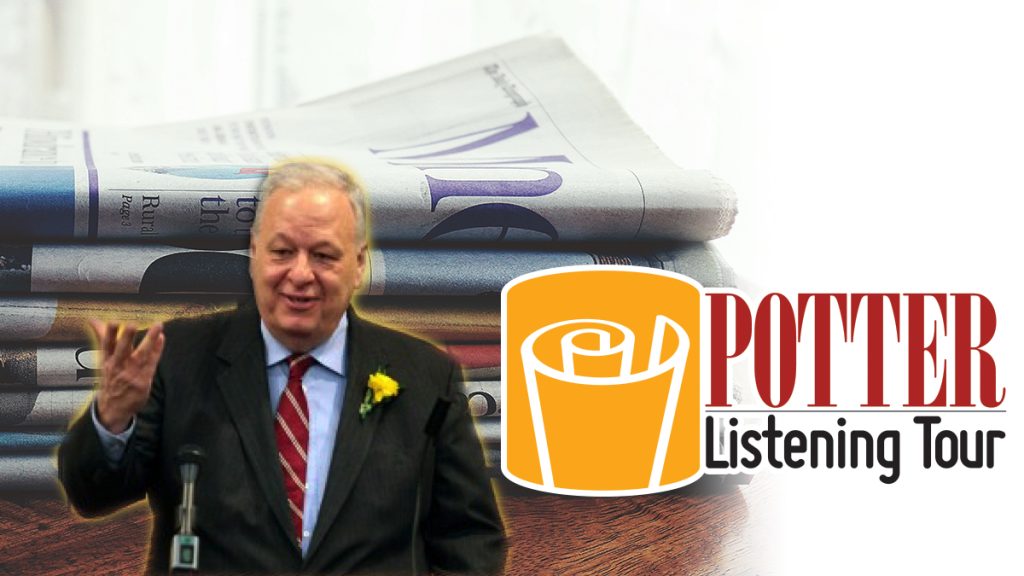
How to make money on digital: The answer is still elusive

The main story that came out of my first stop on the Potter Listening Tour (#potterlisten) is that a small paper can achieve significant success in building a digital audience.
However, figuring out how to make money from that achievement is still a tough task.
The Houston Herald serves more than 25,000 people in Texas County and has persuaded 4,384 people in their South Central Missouri area to like their Facebook page and 879 to follow them on Twitter at @houstonherald.
The Herald’s social media presence helps promote the paper’s 15-year-old website, which is the backbone of its digital operation But, says Publisher Brad Gentry, digital revenue represents only about one in six or seven dollars the paper makes.
“People really like what they can hold in their hands,” says Doug Davison, who wears many hats at the Herald but spends significant time selling advertising. Most digital ad buys are upsells from print ads. “The vast majority (of clients) are print only,” says Davison, who also blogs for the paper.
Still, the paper’s website — the Herald’s motto is “All the News, all the time” — features display ads users can click to go to websites for churches, a stockbroker, a Realtor, a college, a car dealer, a pharmacy and other businesses.
“We’ll help them build their websites,” notes Gentry.
Over the past few years, the paper has begun to charge for online access — visitors still can read up to 12 free stories every 30 days. However, the Herald only charges a few dollars a month for unlimited access. (Indeed, this listening tourist is now himself a proud online subscriber to the Herald.)
Even so, it was a tough sell for people used to getting online content for free. “It was an education process,” says Gentry.
The publisher has been looking at several possibilities to increase digital revenue. For example, the paper has put online a searchable archive of its issues dating back to 1949. (The block that includes the Herald office burned in 1950 when the 1949 issues were at the book binders). But he hasn’t found a suitable way to monetize that yet either.
Meanwhile, the opportunities to boost the Herald’s digital footprint are growing. Editor Jeff McNiell notes that Pinterest is very popular in their rural area, and he wonders if the Herald should create an Instagram account.
Perhaps as the Herald’s digital audience grows, legacy print advertisers will grasp the advantages of an audience that communicates online.
